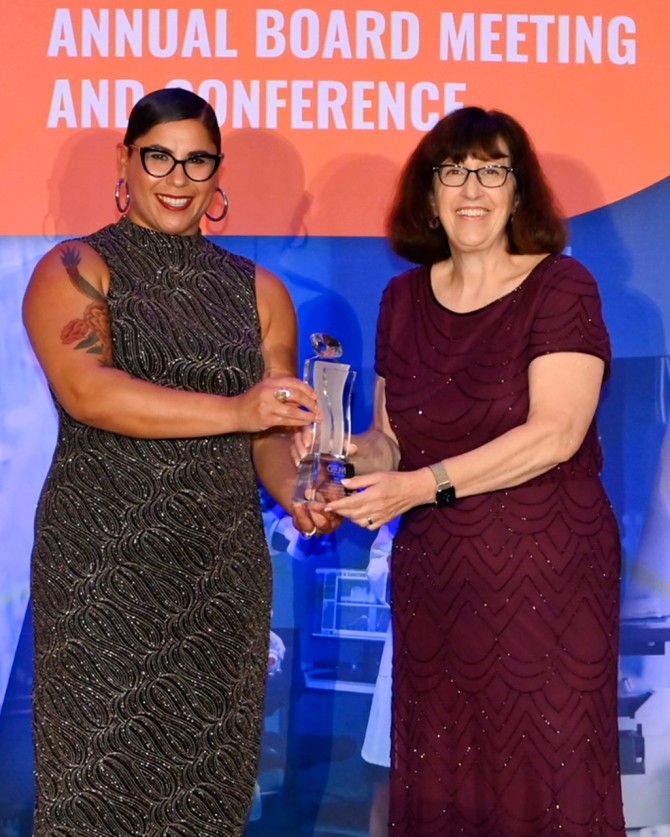Pollack honored with national graduate study diversity award
By Katya Hrichak
President Martha E. Pollack has won a national award for her higher-ed leadership in advancing equity in graduate education in STEM-related fields.
The National GEM Consortium, which partners with universities and employers to support graduate fellowships and professional development opportunities, honored Pollack with the 2023 Academia Leadership Award for her leadership, commitment to public service and dedication to advancing diversity, equity, inclusion and access to graduate education.
Cornell has supported more than 200 GEM Fellows in partnership with the consortium since joining it in 1976. At Cornell, the GEM Fellowship includes experiential opportunities through internships with national laboratories, government agencies and industry, and access to a national network of GEM scholars, partners and mentors.
“When we bring together the best and brightest minds, from across all backgrounds, and provide them with the highest standards of education and mentorship, we create the best possible environment for those minds to spark insight, challenge assumptions and advance knowledge together,” Pollack said while accepting the award in Philadelphia. “This is exactly what the GEM Fellowships have helped graduate students achieve for nearly half a century, at Cornell and at so many other institutions.”
The share of students from backgrounds that have historically been excluded from higher education and who earn graduate degrees has increased in recent decades. But inequities and underrepresentation remain. In 2021, Black, Hispanic and Indigenous people between the ages of 18 and 34 comprised 37% of the population but only 24% of the U.S. citizens and permanent residents who hold science and engineering master’s degrees and 16% of science and engineering doctoral degrees, according to the 2023 Diversity and STEM report released by the National Science Foundation and National Center for Science and Engineering Statistics.
The National GEM Consortium consists of 133 academic institutions, which have graduated more than 4,000 students.
Cornell’s continued membership in the consortium is part of its ongoing commitment to advancing diversity, equity, inclusion and access inside and outside of academia, said Sara Xayarath Hernández, associate dean for inclusion and student and faculty engagement in the Graduate School.
“Creating an atmosphere in which all students feel supported and included is integral to their success, as well as Cornell’s success,” said Hernández. “Cornell’s dedication to this belief is critical to our academic excellence and enabling our students to thrive.”
Katya Hrichak is a communications specialist at the Graduate School.
Media Contact
Get Cornell news delivered right to your inbox.
Subscribe
